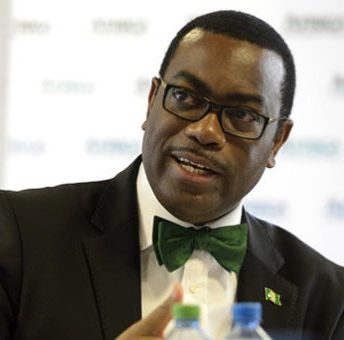 20 January 2013, Sweetcrude, Lagos – The World Bank has projected that Nigeria’s economy would sustain its growth trend in the New Year, with the country’s gross domestic product, GDP, widely forecasted at 6.6 per cent from the 7.3 per cent level last year.
20 January 2013, Sweetcrude, Lagos – The World Bank has projected that Nigeria’s economy would sustain its growth trend in the New Year, with the country’s gross domestic product, GDP, widely forecasted at 6.6 per cent from the 7.3 per cent level last year.
The Bank said in its latest Global Economic Prospects, GEP, report published on Wednesday that fresh foreign investments are expected to be the main drivers of the economic growth in sub- saharan Africa, including Nigeria.
According to the report, increased investment will be a major driving force of growth over the medium term, pointing out that since 2000, investment in the region has increased steadily from 15.9 per cent of GDP to over 22 percent of GDP in 2012, with increased number of the region’s economies tapping into international capital markets to help redress infrastructural constraints widely expected to sustain the growth pattern.
The report indicated that foreign direct investment to the region is expected to remain strong over the medium term, with a forecast that it would increase to new record levels each year reaching a peak of about $55.6 billion in 2015.
FDI inflows to the extractive industries sector, particularly oil and gas, petroleum and solid minerals as well as agriculture sector would be supported by spiraling commodity prices over the next two to three years.
Oil prices at the international crude oil market are projected to average between $102 per barrel by 2013, $102.2 by 2014 and $102.1 by 2015, while international capital flows to developing countries as percentage of GDP would be about 4.7%, 4.7% and 4.9% by 2013, 2014 and 2015 respectively.
In addition to growing foreign sources of investment finance, the report said domestic investment is also expected to benefit from the ongoing financial sector deepening in the region. Over the past decade, the report said bank deposits as a share of GDP have increased by some eight percentage points, supporting a 10 percentage point increase in the private sector credit to GDP ratio during this period.
Noting the lag in monetary policy transmission, the report said widespread cuts in policy rates in 2012, is expected to provide some stimulus to economic activity through 2014.
While identifying the risks that could potentially derail the region’s growth prospects, the World Bank said such risks remain tilted to the downside, as the global economy remains fragile, amidst weaker growth in Chinese investment, ongoing fiscal consolidation in the wake of the Euro Area debt crisis, and weaker U.S. economy.
Besides, it also identified some external risks, bordering on a number of domestic concerns, such as political instability, protracted industrial disputes and adverse weather conditions.
The World Bank said developi




<span class="dsq-postid" data-dsqidentifier="194455 https://sweetcrudereports.com/?p=194455">2 Comments
So, so grammar we dey hear. When poverty ıs manıfestıng on d faces of over 85 percent of Nıgerıans? Dat forecast makes no meanıng to majorıty of naıja people. Its as good as becomıng a mıllıonaıre ın d dream only to be woken by d crow of a cock to face realıty.
While we welcome this projected growth, we would appreciate it more if it is actually reflected in the welbeing of the people.